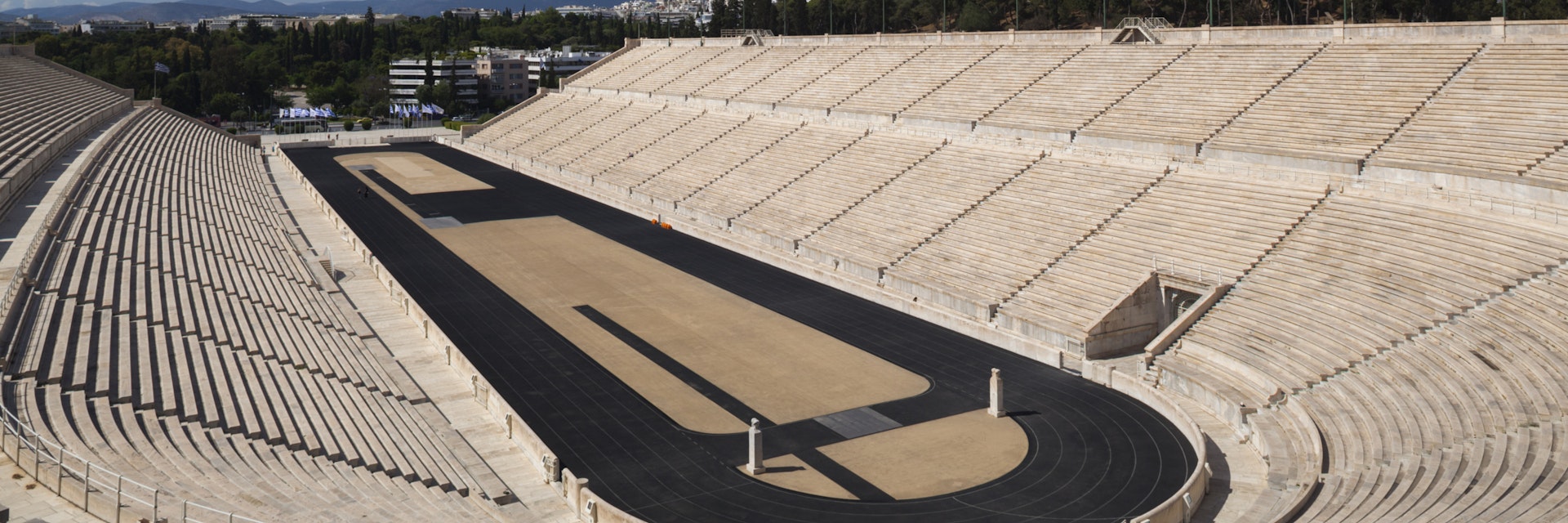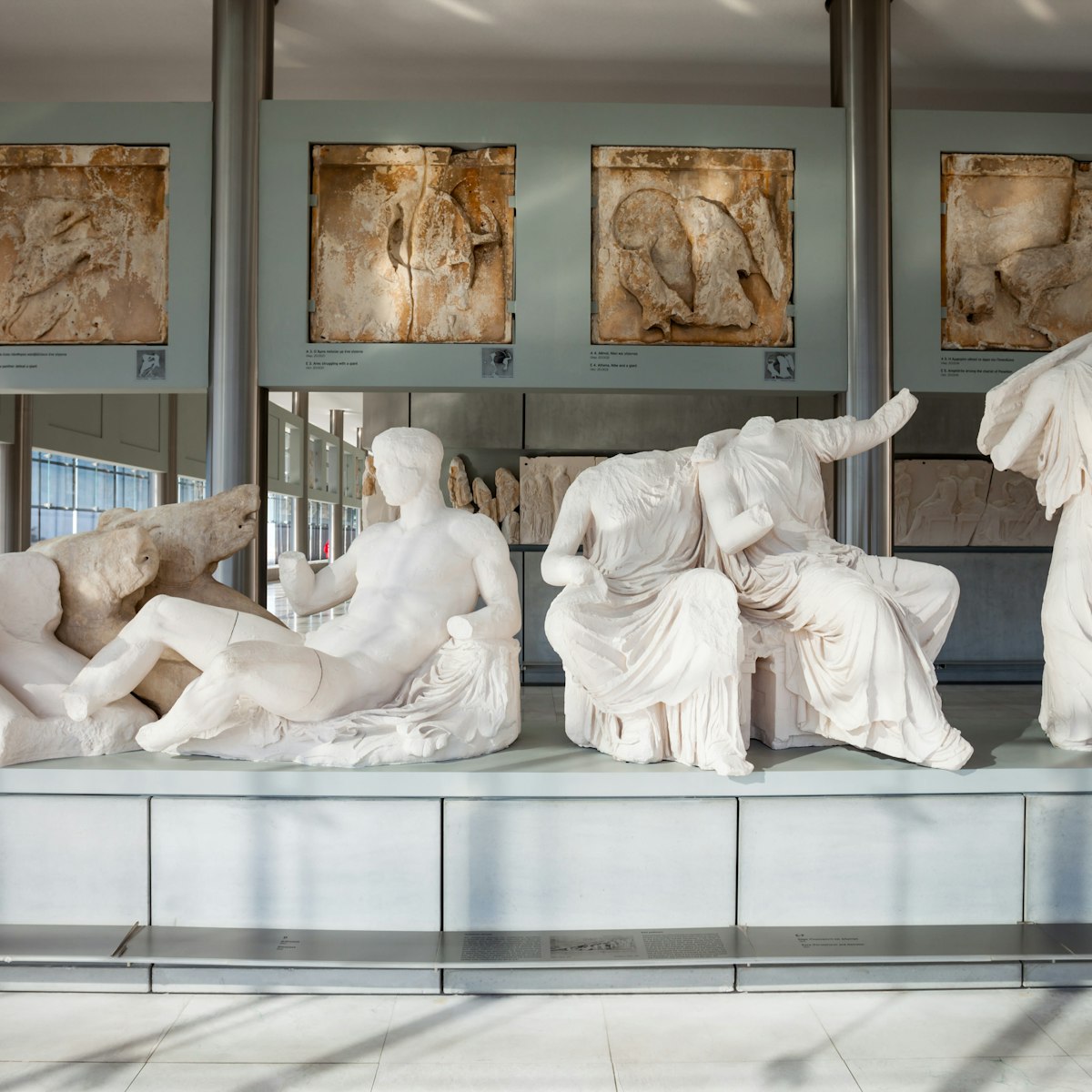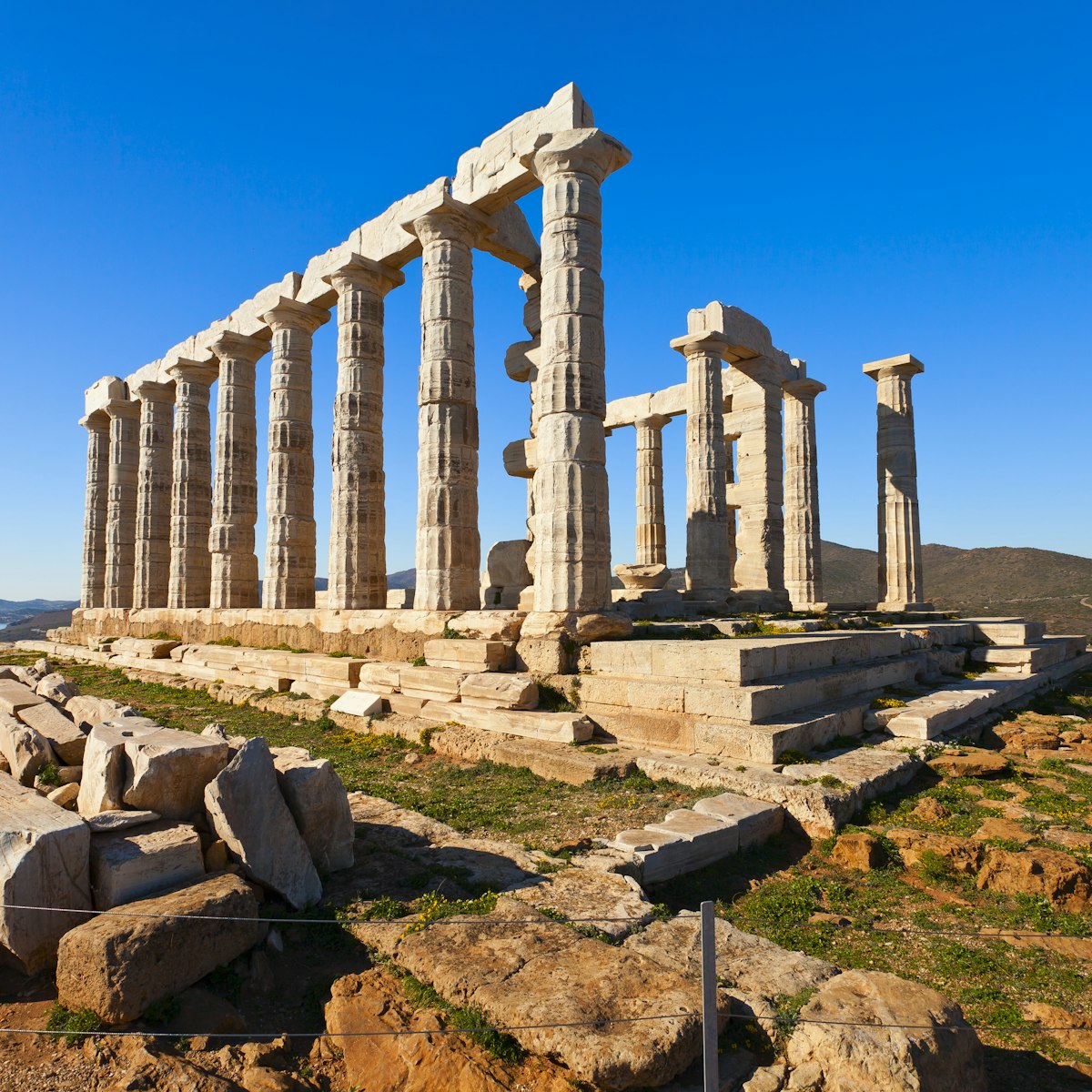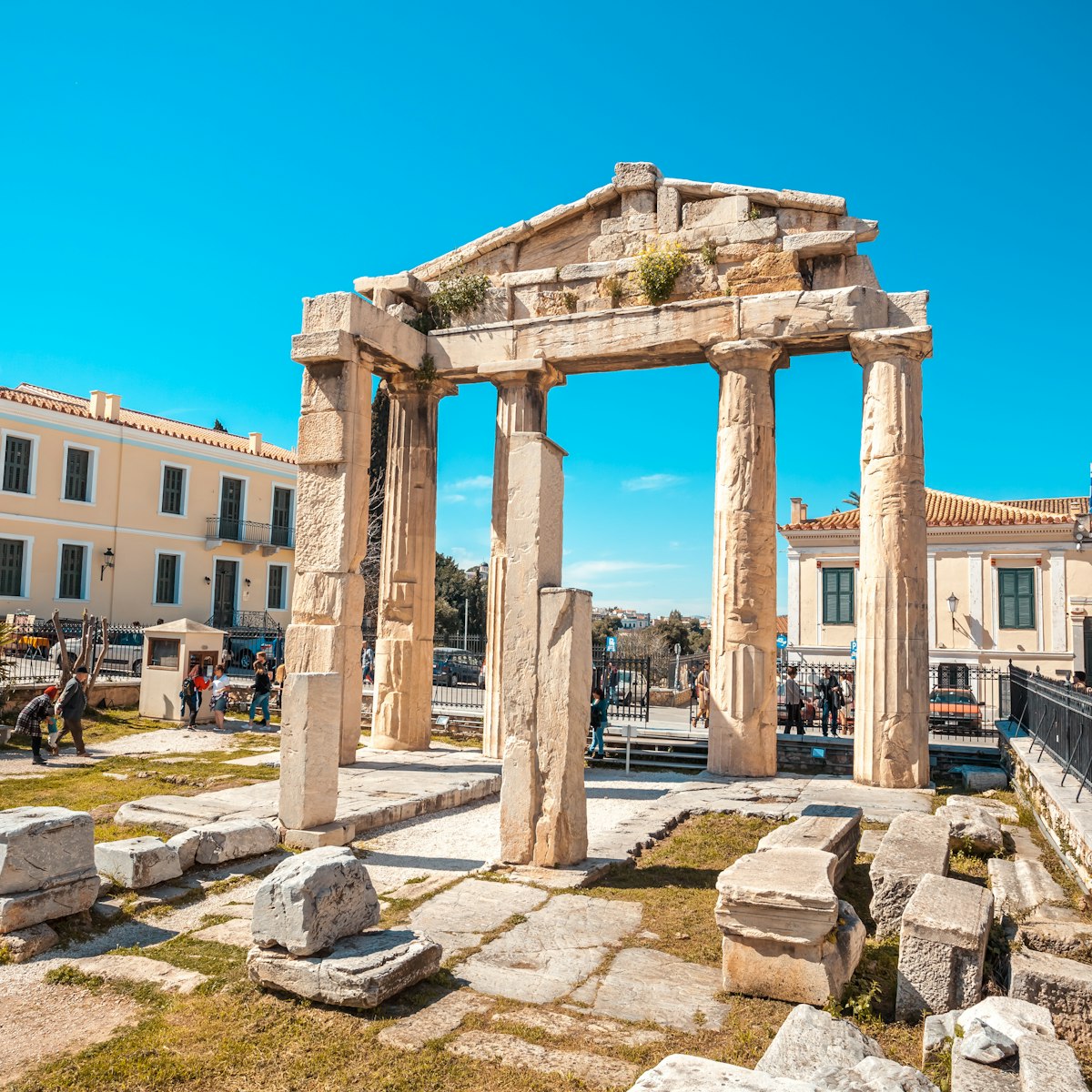With its serried rows of white Pentelic marble seats built into a ravine next to Ardettos Hill, this ancient-turned-modern stadium is a draw both for lovers of classical architecture and sports fans who can imagine the roar of the crowds from millennia past. A ticket gets you an audio tour, admission to a tiny exhibit on the modern Olympics (mainly eye-candy games posters) and the opportunity to take your photo on a winners' pedestal.
The stadium – built in the 4th century BC and restored for the first modern Olympic games in 1896 – was first used as a venue for the Panathenaic athletic contests. It's said that at Hadrian's inauguration in AD 120, a thousand wild animals were sacrificed in the arena. Later, the seats were rebuilt in marble by Herodes Atticus.
In 1895, after centuries of disuse, the stadium was restored by wealthy Greek benefactor Georgios Averof – you can see his portrait carved in marble to the right of the entrance. It seats 70,000 spectators around the running track and field – which is not, unfortunately, modern Olympic-size; the stadium could be used only for archery and the marathon finish in the 2004 games. Now it's occasionally used for concerts and public events.
Morning joggers are welcome here from 7.30am to 9am (download and fill in the waiver form from the website). There's also an entrance to the surrounding park from Arhimidous if you just want to see the view from the top of the stadium.








